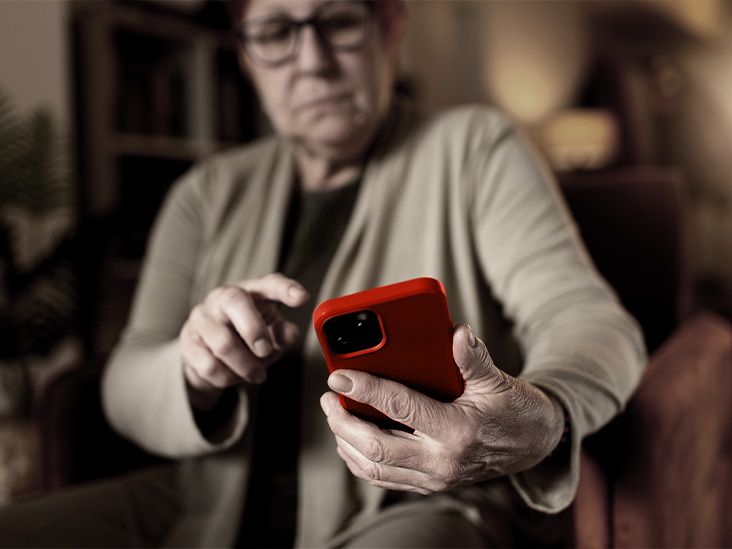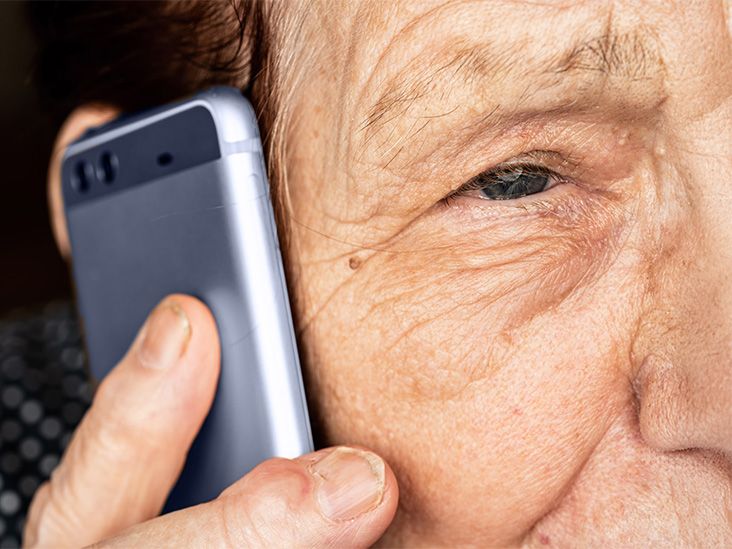Hey there! If you're reading this, chances are you or someone you care about is navigating the world of Medicare. And let me tell you, you're not alone. But here's something important we need to talk about Medicare scams.
Look, I get it. You're probably thinking, "I'm smart enough not to fall for scams." But trust me, these fraudsters are pros at what they do. They know how to sound official, they have your name, and sometimes they even show up on your caller ID looking legitimate. It's like they're wearing a mask of trustworthiness, and that's exactly what makes them so dangerous.
What's scary is that Medicare scams aren't just about stealing your money they can mess with your healthcare records and identity too. So let's chat about how to spot these red flags and keep yourself protected.
What Are These Scams?
Okay, let's break it down. Medicare scams happen when bad guys pretend to be from Medicare, your health plan, or even a government agency. Their goal? To trick you into giving them personal info like your Social Security number or Medicare number.
Once they have that information, they can do some pretty nasty things file fake claims, steal medical equipment, get prescription drugs illegally, or even steal your entire identity. It's like giving someone the keys to your financial and medical life.
Why does this matter so much? Well, it's not just about losing money. These crooks can actually mess with your medical records. Imagine showing up for a test, only to be told you've already maxed out your benefits because someone else has been using your coverage. Scary stuff, right?
Spotting the Warning Signs
Here's the thing these scammers are getting crafty. But there are definite warning signs if you know what to look for. Let me share some big red flags that should make you pause:
First, if someone contacts you out of the blue offering free stuff whether it's medical supplies, medications, or genetic tests that's a huge warning sign. Remember, legitimate Medicare services don't just call you up offering freebies.
Another major red flag? Urgent claims about your card or account. If someone's pressuring you with threats like "your card is expired" or "you'll lose coverage," step back. Real Medicare doesn't operate with that kind of urgency over the phone.
Have you ever gotten a call asking for payment information or personal details? Big mistake territory. Legitimate Medicare services will never ask you to pay for a Medicare card or send money via wire transfer to secure benefits.
And here's something that might surprise you if someone asks you to return your old Medicare card, that's fishy too. When you get a replacement card, you can simply shred the old one. There's no need to mail it back anywhere.
Protecting Yourself
Look, prevention is so much easier than dealing with the aftermath. Here are some simple habits that can keep you safe:
First, be careful with your Medicare number. Only share it with doctors, pharmacists, or trusted insurance professionals. And definitely check your claims summary regularly at Medicare.gov. It's like doing a quick health check on your Medicare account.
When in doubt, hang up on mystery calls. Even if they have your name or address, don't feel obligated to engage. Real Medicare will send you written notices for important stuff.
And please, don't click on links in suspicious emails or texts. I know it's tempting, especially if they look official. But phishing attempts are getting really sophisticated these days.
Here's a helpful comparison to keep in mind:
| Scam Scheme | Legitimate Contact |
|---|---|
| Asking for credit card or payment info | Plans send annual notices or invoices by mail or secure portal |
| Repeated robocalls with urgent tones | Enrollment counselors must follow strict regulations |
| Demands to return original card or "upgrade" | Replacement cards come directly from SSA/CMS |
Real Stories from Real People
Let me share something that really opened my eyes. A few years ago, there was this case where folks started getting "free genetic testing kits" in the mail. Sounds harmless, right? But here's the kicker nobody knew what these tests were for, and later, thousands of dollars in fraudulent billing started showing up under their names.
It wasn't until people checked their statements or got contacted by the Office of Inspector General that they realized what happened. The lesson here is crystal clear: if you didn't request it, especially medical tests or screenings, proceed with caution.
Different Types of Scams
These fraudsters don't just have one playbook they've got several tricks up their sleeves. Let's look at some of the most common ones:
The "Bogus Medicare Card Scam" is pretty straightforward. Someone calls claiming to be from Medicare and offers to help replace your card, but they need your personal information first. Classic bait and switch.
Then there's the "Benefits Cancellation Swindle." They pressure you to pay or verify information over the phone, threatening to cancel your coverage if you don't act fast. It's all about creating panic and getting you to act without thinking.
Have you heard about unauthorized supplement sales? Someone pretends to represent a "better" Medicare Advantage plan and tries to upsell you third-party products. Sounds helpful, but it's usually a trap.
What really gets me is phantom billing or unbundled charges. Healthcare providers bill separately for parts of procedures that should be covered as one package. It's sneaky accounting that can cost you hundreds.
What to Do If You're Targeted
Okay, so what happens if you think you've been targeted? Don't panic there are steps you can take:
First, collect evidence. Save any voicemails, emails, or texts. Write down dates, times, and what was said. This information is gold when you're reporting the scam.
Next, contact Medicare right away. You can call 1-800-MEDICARE or visit Medicare.gov to file a fraud report. The sooner you report it, the better your chances of stopping the damage.
File a complaint online too. The Office of Inspector General has a website at ReportFraud.ftc.gov where you can submit your findings. These folks are the real deal when it comes to tracking these patterns nationwide.
Don't forget to notify other relevant agencies your local SHIP offices, insurance companies, and even your state's Attorney General's office. The more people who know about the scam, the better protected everyone becomes.
And seriously consider freezing your credit. It's a bit of work, but services like Experian, Equifax, and TransUnion can help lock things down in emergencies. Better safe than sorry, right?
Pro Prevention Tips
Let me share some expert-approved tips that can make all the difference:
Keep a list of healthcare providers and trusted contacts you actually work with. No cold-callers should ever have your numbers.
Stay alert year-round. While scams tend to ramp up during Open Enrollment (October through December), these crooks are busy 365 days a year.
Use government-trusted help sources. Organizations like SHIP volunteers, certified counselors, and official Medicare agents provide free, neutral advice.
Rely on credible sources for information. Check out Medicare.gov, the National Council on Aging, and official Centers for Medicare & Medicaid Services resources.
Pro tip: Consider robocall-filtering apps or adding your number to the Do Not Call Registry. It won't stop everything, but it can reduce some of the noise.
Staying Connected and Informed
You know what I love about community? When we look out for each other, we're all safer. I'd love to hear from you have you or someone you know encountered a Medicare scam? Sharing these stories helps warn others and makes us all more aware.
The truth is, Medicare fraudsters are counting on one thing: that we'll let our guard down. They prey on our trust, our politeness, and sometimes our confusion about how Medicare works.
But here's the good news you're not helpless. By understanding these red flags, protecting your sensitive information, and knowing how to report suspicious activity quickly, you're already way ahead of the game.
Don't wait until something goes wrong to learn about protection. Take control now. Bookmark this information, share it with family members, and make it part of your regular check-up routine just like you would review your actual Medicare summary notices.
Remember, staying informed and staying vigilant is your best defense. You've got this, and we're all in this together. Trust your instincts, ask questions, and when something feels off, don't be afraid to hang up or walk away.
Your peace of mind and financial security are worth it. Take care of yourself, and don't hesitate to reach out if you have questions or want to share your own experiences with staying safe from Medicare scams.
FAQs
What are common signs of a Medicare scam?
Watch out for unsolicited calls offering free medical supplies, urgent threats about your coverage, or requests for personal information like your Medicare number.
Can Medicare really call me to offer free items?
No, legitimate Medicare services do not call to offer free gifts, medical equipment, or genetic testing kits. These are typically scams.
What should I do if I suspect a Medicare scam?
Hang up immediately, save any evidence, and report the incident to Medicare.gov or the Office of Inspector General at ReportFraud.ftc.gov.
How can I protect my Medicare information?
Only share your Medicare number with trusted healthcare providers and check your Medicare Summary Notice regularly for unauthorized charges.
Are robocalls about Medicare always scams?
Most unsolicited robocalls claiming to be from Medicare are scams. Legitimate Medicare communications usually come by mail, not phone.
Disclaimer: This article is for informational purposes only and does not constitute medical advice. Always consult with a healthcare professional before starting any new treatment regimen.
Related Coverage
Stay safe with effective medication management for older adults. Learn tips to prevent errors, avoid interactions, and maintain health....
Aging is gradual but starts earlier than many realize - around age 30. Understand normal physical and mental changes to expect through middle age and beyond....
Quick ways to spot and stop Medicare scam calls, protect your personal info, and report fraud with confidence and ease....
Find the right Medicare in Connecticut with our simple guide to coverage options, enrollment tips, and plan comparisons....
Get clear, simple help with Medicare in Illinois. Learn about coverage options, enrollment periods, and how to choose the right plan for you....
Find out if Medicare covers adult day care services and explore options for financial assistance with adult day care....
Learn how HRA and Medicare can work together to reduce your healthcare costs. Find out which HRAs are compatible and what expenses are covered....
Know how to report death to Social Security and Medicare promptly. Get step-by-step help to avoid overpayments and learn about survivor benefits....
Learn how Medicare nonparticipating providers work, including billing practices and out-of-pocket costs. Get informed today....
Medicare covers end-of-life planning services. Learn how to prepare for future healthcare decisions and ensure your wishes are respected....









